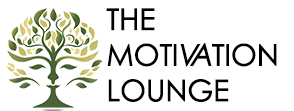In today’s fast-paced world, it’s common for individuals to seek guidance and support to navigate the complexities of life. Two popular forms of support are life coaching and mentoring. While both aim to help individuals grow and succeed, they are fundamentally different in their approaches and objectives.
Comparing Life Coaching and Mentoring
| Aspect | Life Coaching | Mentoring |
|---|---|---|
| Objective | Personal growth, goal achievement, performance | Personal and professional development, guidance |
| Focus | Future-oriented | Present and future |
| Relationship | Professional and structured | Personal and informal |
| Duration | Short-term, specific goals | Long-term, ongoing |
| Selection Process | Client chooses coach based on compatibility | Mentor-mentee pairings often naturally evolve |
| Certification | Professional certifications are available | No formal certifications required |
| Accountability | High level of accountability | Lower level of accountability |
| Techniques | Goal-setting, problem-solving, behavior change | Sharing experiences, offering advice |
| Expertise | Broad range of topics | Specific area of expertise |
| Fee | Often involves a fee | Usually voluntary and free |
| Age Range | Applicable to all ages | Often focuses on younger individuals |
| Scope | Holistic, focuses on all aspects of life | Narrower, focuses on specific areas |
| Motivation | Internal motivation enhancement | External motivation and support |
| Structure | Scheduled sessions | More flexible and spontaneous meetings |
| Assessment | Regular progress evaluation | Informal or no formal assessment |
| Communication Style | Active listening, powerful questioning | Empathetic listening, storytelling |
| Skill Development | Emphasis on skill development | Emphasis on knowledge sharing |
| Emotional Support | Limited emotional support | Higher level of emotional support |
| Confidentiality | Strict confidentiality | Usually confidential, but less formal |
| Role of the Coach/Mentor | Guide, motivator, strategist | Advisor, role model, confidant |
Conclusion
life coaching and mentoring are practical approaches to personal and professional growth. Whether seeking a life coach to help navigate unique challenges or a mentor to provide guidance and expertise in a specific field, both can be powerful tools for personal and professional development. However, they differ in many aspects, including their objectives, focus, relationship dynamics, and techniques. Understanding these differences can help individuals choose the appropriate method of support that best aligns with their needs and goals.
